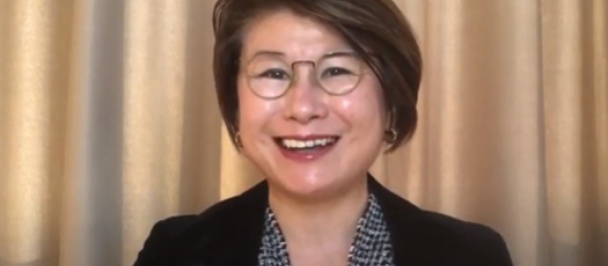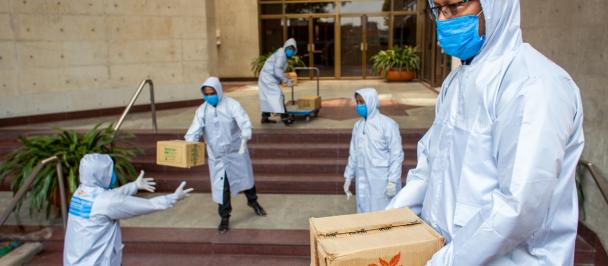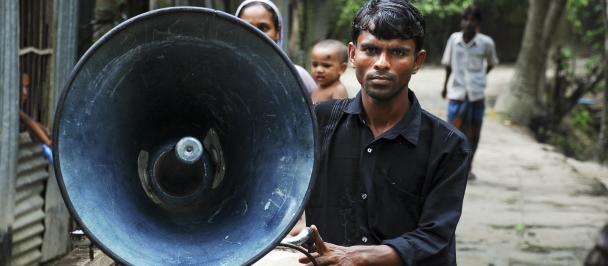Your Excellency Mr. Muhamadtoir Zokirzoda, Deputy Prime Minister of the Republic of Tajikistan, Mr. Rustam Nazarzoda, Chairman of the Committee of Emergency Situtations and Civil Defense, Excellencies, Distinguished Delegates, Ladies and Gentlemen
On behalf of UNDP, it is my great pleasure to address the Regional Conference on Disaster Risk Reduction and Implementation of the Sendai Framework for Disaster Risk Reduction.
Let me take this opportunity to congratulate the Committee for Emergency Situations and Civil Defense as it celebrates its 25th anniversary in August 2019. It is symbolic that the two long-standing partners in Tajikistan – the UNDP and Committee for Emergency Situations and Civil Defense – are celebrating their 25th anniversary at the same time. Throughout these years, we have been working hand in hand to strengthen people’s ability to withstand natural disasters, preparing contingency plans; ensure emergency supply stockpiling; early warning system.
This conference marks a crucial milestone for countries and the international community with less than a year to go until we reach the 2020 deadline of the Sendai Framework Target-E. It also provides a good opportunity to take stock of the progress we have made collectively in implementing other Targets of the Sendai Framework.
We would like to thank the Swiss Cooperation Office for supporting the organization of this important conference.
The focus of the conference is on implementation of commitments of the states towards achieving the goals of the Sendai Framework. Conference emphasizes the importance of inclusive societies as a prerequisite for achieving long-term sustainability. The trend of growing inequalities has become a major concern, especially for the poorest and most vulnerable members of our societies. Inequality is also a major driver of risk. Therefore, at UNDP we are committed to strengthening inclusive and gender-sensitive approaches in our development, risk reduction and recovery efforts.
UNDP will also remain at the forefront of risk-informed development. Seeing how the efforts by our programme countries to achieve sustainable development have routinely been hampered by disasters and climate impacts, we now have clear evidence that sustainable development will remain elusive unless resilience and risk reduction considerations are fully integrated in development policy, planning and implementation. This notion is not only embedded in the Sendai Framework, but also in the Sustainable Development Goals, the Paris Agreement, as well as the UN Secretary General’s Prevention Agenda.
Tajikistan and number of other countries in the region have demonstrated strong commitment and leadership in advancing DRR agenda in their countries, I would like to commend all your efforts in this regard, but I would also like to highlight the regional aspect. As a global lead in supporting national Governments in their efforts on DRR, UNDP looks forward to pursuing joint solutions to key challenges in collaboration with our sister UN agencies, partners, and the stakeholders we engage with at all levels of society. We can deliver these solutions, if we focus on three key obstacles. Firstly, the need to increase the financial basis for disaster risk reduction. As the cost of disasters today equals all development cooperation, disaster risk reduction is simply put good economics. Secondly, ensuring that disaster risk reduction is effectively taken into consideration in the discussions on the humanitarian-development-peace nexus. We must seek synergies in multidimensional approaches.
And, finally, linked to this is, the need to address disaster risk reduction in tandem with other types of risks such as climate change, conflicts, technological disasters and epidemics to reduce impacts on human security, sustainable development and community resilience. This comprehensive approach is also the direction we are getting from the UN Common Guidance on Helping Build Resilient Societies.
Ladies and Gentlemen, UNDP is the largest provider of climate change adaptation and mitigation support within the UN system. We also have a considerable portfolio of DRR and recovery programs, including support to 40 countries to align national and local DRR Strategies with the Sendai Frameworks requirements, and an investment of over $2.2 billion since 2005 in support of both Hyogo and Sendai Framework Priorities for Action. We are also fully committed to the United Nations Plan of Action on Disaster Risk Reduction for Resilience.
In this region, UNDP will continue to provide support to the national institutions working on various aspects of disaster risk reduction. UNDP will work jointly with partners to provide consolidate support to the Governments in the region to develop and implement national and sub-national DRR strategies, to identify and regularly assess hazards and risks, to continuously work on investing more in DRR and improve level of preparedness and response at all levels.
While considerable progress has been made, a long road lies ahead. UNDP believes that a collaborative, synergistic and partnership-based approach across countries and development contexts will be essential to translate the vision of Sendai into reality and we hope that this Conference will advance the commitment for action.
To conclude, I would like to reiterate our gratitude to the government of Tajikistan for hosting this important conference.
Thank you.

 Locations
Locations


